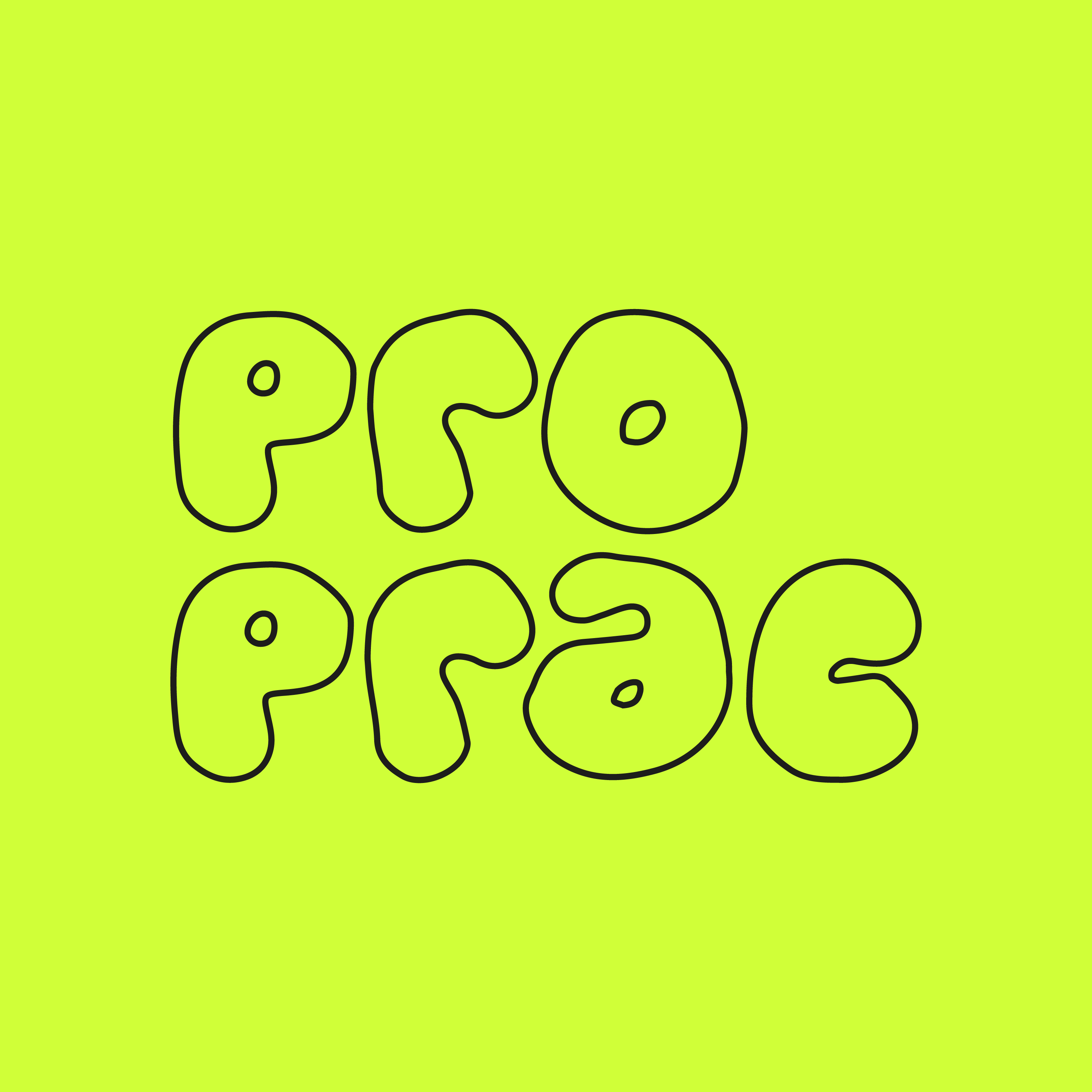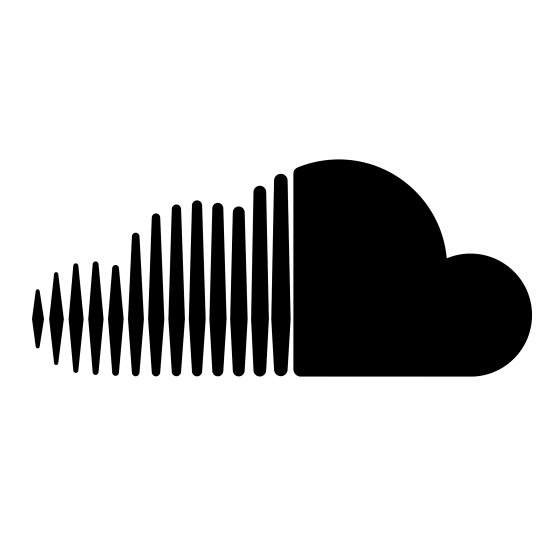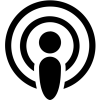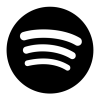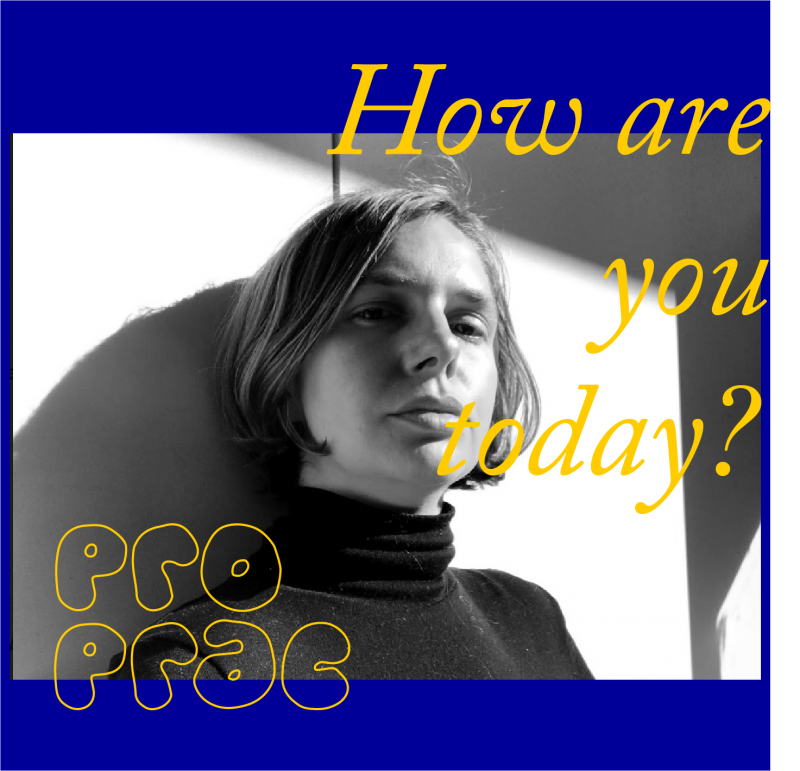
Amelia Wallin
How Are You Today – Episode 3
Resources
Instagram handle @ameliawallin
westspace.org.au
unprojects.org.au
Transcript
Kiera Brew Kurec 0:04
Hello, and welcome to Pro Prac. I’m Kiera Brew Kurec.
Nick Breedon 0:06
And I’m Nick Breedon.
You’re listening to How Are You Today? a spin off series where we’ll call an artist and check in with how Coronavirus is affecting them mentally and physically and ask them to share their worries and their hopes for the future.
Hello,
Amelia Wallin 0:30
Hello.
Kiera Brew Kurec 0:31
Hey,
Nick Breedon 0:32
Amelia how you going?
Amelia Wallin 0:34
I’m good. How are you?
Kiera Brew Kurec 0:35
We’re good!
Nick Breedon 0:37
All right. How are you today?
Amelia Wallin 0:39
Ever since you emailed me saying the name of the podcast, I’ve been turning that question over in my head to kind of every hour coming up with a different answer. (Laughter)
Kiera Brew Kurec 0:49
Yeah.
Amelia Wallin 0:53
It’s really hard to answer I think. And I guess I was reflecting on why it’s so hard to answer that how, how am I today? I think it’s because everyone’s experience in the current moment is so polarized. It’s the differences are so dramatic between the people who are the most vulnerable, who are finding themselves kind of out of work and their health is a threat, to the other side of people who are kind of overworked and not not affected their health crisis. Yeah, it’s such a particular experience. I think that that it’s not, it’s not universal. It’s really different based on individual circumstances. But in terms of how I am, I’m feeling quite good today, I think, because I attended my very first zoom public program last night, It was really wonderful. It was the launch, of Un magazine, issue 14.1 on care. And it was a beautiful, coming together, reading across countries over zoom, and it was very inspiring, and a really nice reminder that we can still feel connected despite distance.
Kiera Brew Kurec 2:09
Yeah, that’s so great. It’s, it’s been amazing. Whenever I’ve had an experience, either something like VCA’s Art forums, or having little crits with friends or viewing someone’s performance online, how much that re-energizes me and I had kind of forgotten how much viewing art and being with community like really fills you up. Because you kind of, you know, quickly adapt to what are the circumstances happening to you right now and just kind of getting on with things. And then when you’re like, Oh, this huge part of my life, like I haven’t been able to access. And yeah, how fantastic that is.
That’s exactly what I’ve been feeling. And I think there’s a sense of kind of acceleration. At this moment, even though you know, some things are slowing down. Other things are accelerating in terms of kind of juggling, you know, care work with waged work, and those kinds of things that are, you know, like a personal struggle for me right now. So it was a really good reminder to make time to, to listen and to come together and not just be in my own bubble of work and caring.
Nick Breedon 3:29
You touched on just a sec for a second there, but how have you personally been affected by what’s happening?
Kiera Brew Kurec 3:35
Yeah, I mean, I think I’ve been, the biggest effect has been the closure of schools and childcare centres. And that affected me both personally and professionally. I have a five year old son, who my partner and I transitioned to, to home-schooling is in four year Kinder, so it’s not, not full, you know, six hours a day sitting down, but it’s still, you know, he has meetings with teachers over zoom and has kind of, you know, a lot of play built into his routine. It’s been a really big shift because for so long society is kind of demanded that we separate, you know, reproductive labour from, from productive labour, I’m doing this with my fingers, but, you know, the work that pays off that, you know, that’s really separate from from the work we do, you know, whether we have children or not, that can still be the work of, you know, reproducing ourselves, cooking ourselves meals, washing, dressing, preparing our house, for sleep, you know, all those, all that work is kind of undervalued and made invisible. So, now that a lot of children are home, and a lot of work is still expected, a lot of wage work is still expected to be carried out. I think there’s a big kind of a combination of things that are happening in that I, we can’t ignore that kind of work anymore. And it’s not possible to have a meeting, over zoom without some kind of interruption from my child. You know, no longer those things held at bay. They’re interconnected. And it’s messy, but they always were, we were just pretending they weren’t.
Nick Breedon 5:32
And someone was doing the job of making that. So,
Kiera Brew Kurec 5:35
yeah, carrying that weight.
Amelia Wallin 5:39
Exactly. Yeah. So I guess I’m coming away from it with, you know, even kind of deeper, deeper respect for the work of like, as carers and educators, and also just hoping that in our professional lives, we can, we can embrace that kind of work as well. And know that one bit that they’re not two separate things are actually interrelated. And that, you know, we don’t need to divide these two domains of like the public and the private that actually, it’s healthier if we can expose both as well, our friends and colleagues rather than separate them.
Nick Breedon 6:18
Yeah. You said that. I mean, you obviously sound like you have a lot on your plate right now. But have you found any kind of projects that you’ve been, you know, that’s that have been inspiring you outside of work at the moment? And, you know, caring for family that you’ve begun any iso projects?
Kiera Brew Kurec 6:39
I mean, that answer is that Yeah, Work is work and family have been huge for me these last few weeks. I did. Yeah, I did. Just my trampoline.
Oh cool!
Amelia Wallin 6:49
That’s my iso….
Nick Breedon 6:51
For you?
Amelia Wallin 6:53
I mean, pretending it for my son but really it’s for me (Laughter).
Nick Breedon 6:57
Yeah, great!
Kiera Brew Kurec 6:59
Yeah, but I think my biggest achievement is probably being reading three of the Moomintroll chapter books to my son, I don’t know if you’ve read Moomintroll.
Nick Breedon 7:09
No,
Amelia Wallin 7:09
But they are really fantastic books, that’s something that I’ve been enjoying. I mean, it’s still it’s still family. But it’s something that wouldn’t have happened without this moment where like, now we have time to sit down and read, read whole chapter books. And you know, just listen and read together.
Kiera Brew Kurec 7:31
Obviously, also, professionally, like your workplace, being West Space has had to dramatically shift and change things, like very quickly as well. Is there anything that West Space is kind of working on at the moment? That is kind of in response to what’s happening? Or have you been discussing that? Or is, you know, what, what is happening? (Laughter)
West Space is in I mean, I want to say a unique position, but also 50 other organizations across Australia are in the same position of losing our ongoing four year funding from Australia council amidst, the pandemic. So it’s a really particular experience that we you know, we share with kind of comrades across Australia, but it’s particular in that, you know, it’s a time to recalibrate the organization. But it’s come at a time when we can’t physically come together, and we can’t, you know, celebrate our exhibition program, and we can’t be together as a staff. So it’s definitely been been challenging. But our approach kind of as a team, working really closely with Andy Butler and Thea Jones and Tamsin Hopkinson is to pull back. First, the instinct was to create and produce and to go digital and to keep active and remind everyone how important we were. But that impulse faded quite quickly. And we actually realized that we we can use this to reflect to support artists who were already working with us to support them through their grant application and through continuing to work on their exhibitions through pushing our program back so that 2021 is like a bumper year of amazing commissions, and using this as a lead time to work towards them. So our exhibition program is, is in some ways unchanged. But then we’ve also had this other really fulfilling initiative that we’ve been doing with Blindside Caves and Kings artist run and that’s called Constant Ecology. And the four organizations have come together to release a series of at home residences. And we were trying to think of the best ways we could support out of this time. And we came up with this model where, you know, artists, artists have renumerated a fee to stay in their own home and produce, or research or begin to think about an artwork related to the theme of ecology. And we wanted this to be without pressure to present something that isn’t an option for an outcome towards the end of the year. But it felt really important that if that wasn’t the premise, because I wouldn’t want to put the pressure to produce on anyone at this point in time. Yeah, you know, acknowledging This is a really distracting, difficult time to work. You know, I think it’s incredibly hard to forge this and to produce, so yeah, yeah, they felt really important that, you know, this is money to research. And if you at the end of it, you, you don’t want to put that into an outcome, then we’ve 100% support that. But this is to support the research and the thinking. So that’s felt really, really nurturing. And, yeah, really good to put that out into the world.
That’s so good. And I think that that’s really interesting that West Space has taken that approach of like, stepping back and kind of providing a space of care and reflection. I was chatting with a friend the other day, how very quickly, there was a lot of people kind of putting their hands up and putting things out for like digital works, and often from organizations or spaces that might not actually normally foster that within their normal programming, and who might not actually have the capacity to work with people or have like, had those ongoing relations with ships with people who work in digital forms. And not to say that people who work outside of those forms can’t then go into working in them. But it does seem very interesting how all of a sudden, everyone was like, Oh, yeah, you know, we were totally down for you doing this kind of stuff. And it seemed a little bit fake and a little bit insincere. And, and while it’s great to, you know, have things for people to be working on and outcomes in there also seem to be missing this kind of, like, idea of yeah reflection and the hardships that artists are facing right now and what do they need to get through this time? And how can we come out on the other side, kind of, in a stronger position than when we kind of went into isolation?
Amelia Wallin 12:52
Yeah, absolutely. And I’m also interested in thinking about the digital and the exhibition, you know, not being an opposition? How can they kind of co-exist, you know, so it’s not just digital is replacing the exhibitions until we’re allowed to reopen, and then it goes away? You know, how, you know, because it provides digital, you know, engagement provides an amazing kind of access or opportunity, and how can that be kind of built into a program in an organic way that sustain, you know, like, I guess, to return to Un launch, that was a really beautiful experience and, you know, we hear from Emily Johnson in reading from North America, in New York and upon Lenape country. So how amazing to have that provided to us.
Kiera Brew Kurec 13:48
Yeah, and I think it’ll be really interesting to see what farms actually do kind of lend themselves more to being in digital format. And like, you know, kind of more easily reached by people and able to be
Nick Breedon 14:03
more accessible as well
Kiera Brew Kurec 14:05
Yeah.
Yeah, absolutely. And we are working on some kind of digital Commission’s as well, but it’s just a much slower pace. But more, we’re kind of taking the approach of trying to conserve energy of both artists and staff and it to be a way of like, you know, what are you already working on? What are you already thinking about? I mean, kind of this podcast sort of does the same kind of thing. You know, it’s it’s, you’re asking the questions that are already I’m already asking myself and you know, the things I’m already reflecting on and the that’s the approach we’re taking with these you know, more digital Commission’s, you know, what are you thinking about? What are you doing, you know, would you like to share them with a wider audience? Can we be a platform for that?
Nick Breedon 15:03
I mean, you know, if things are in a bit of a state in the world at the moment, but you know, if there’s any silver lining or anything that, you know, is there anything that you’re hopeful for? coming out the other side of this?
Amelia Wallin 15:18
Yeah, I mean, on a, on a micro level, or a personal level Yeah, there’s definitely lots I want to take out in terms of like my my work life balance, and how I want to use my time at work and use my time at home. You know, and everything I was saying before about the kind of false separateness of those things, that that’s something I want to be be continuing to, like, think about and work to undo. And then also, yeah, thinking about I owe this to a conversation I had with Fayen d’Evie as well about the the access that these digital initiatives can provide to people, you know, who might live remotely or to be at home or have other access issues, you know, how can we build into our programs, this level of digital connectivity, that doesn’t replace the physical side, but exists in tandem? You know, I think, you know, can all talk start to become live streamed or at the very least, transcribed and shared? You know, can we work? Can we get better at sharing exhibitions and writing and video links digitally, rather than having to hold on to this experience of needing to see them in the space? You know, one, how can we how can we keep working to have the two colleagues? This is something I’ve been taking going forward?
Kiera Brew Kurec 16:51
Yeah, I’m excited about that, too.
Amelia Wallin 16:55
Yeah, I think it can do a lot in terms of kind of global connectivity, as well. I think it’s, of course, there’s something really special about seeing an exhibition in person. And, you know, there’s something that’s also really draining about scrolling through exhibitions on Instagram. But what what’s the middle ground that can exist between those two experiences? How can it be something new and interesting? And something different?
Kiera Brew Kurec 17:32
Yeah, for sure.
I think that’s a nice place to leave it. But I just want to ask, do you have any public Instagram or websites that you want to share with us so that people can kind of keep up to date with what is going on with you?
Okay, well, my personal Instagram, Amelia Wallin features, pictures of my kid and my blue heeler puppy. So follow along if you like that kind of content,
Nick Breedon 18:03
That’s I content I want!
Amelia Wallin 18:08
(Laughter) He came in the other day while I was trying to work from home on my phone and my son Otto was holding a sign he made which was a picture of a mobile phone with a big cross through it.
Kiera Brew Kurec 18:22
(Laughter) Protest!
Amelia Wallin 18:24
(Laughter) yeah a protest about like the anti-work from home movement was really something and then my Yeah, then there’s West Space on Instagram as well, which is where we’ll you know, people can find more details about constant ecologies which has opened for one more week applications for that close on the 15th of May. And we’ll also be launching when we slowly slowly let our digital initiatives into the world. There will be more on that platform too.
Kiera Brew Kurec 18:54
Awesome. Thank you so much for speaking with us today.
Amelia Wallin 18:58
Thank you for the chat and enjoy the rest of your afternoon. It’s such a nice sunny one.
Kiera Brew Kurec 19:03
See you
Nick Breedon 19:04
Bye
Unknown Speaker 19:11
We respectfully acknowledge the traditional owners of the land, the Wurundjeri people of the Kulin nation and pay respect to their elders past, present and emerging and the elders of the lands that this podcast reaches you on today. We extend that respect to all First Nations people listening today and acknowledge that sovereignty has never been ceded.
Kiera Brew Kurec 19:29
How Are You Today? has been generously supported by the city of Melbourne’s quick response grants. Follow us at propracpodcast on Instagram or email us at propracpod@gmail.com. If you haven’t already, please subscribe on whatever you listen to podcast on.
Nick Breedon 19:44
Please stay in touch, We’d love to hear what you’re up to as well.

Pro Prac acknowledges City of Melbourne’s generous contribution to How Are You Today? through their Quick Response grants program
